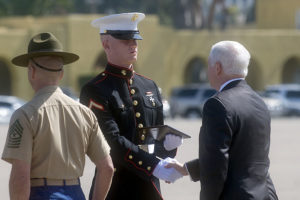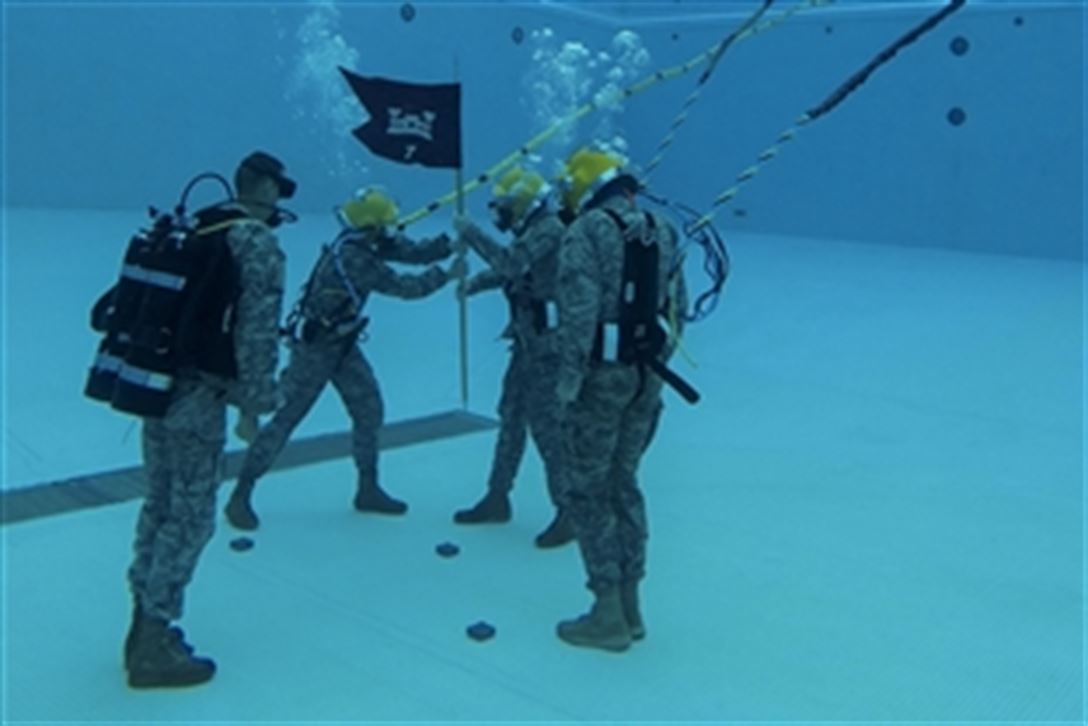
In a previous post, I spoke about a central aspect of leadership that is key to success…to never forget where you came from. In the context of being a leader, this means to remember what is like when you were a follower, and lead accordingly.
I came to realize that this not only applies to leadership in the hierarchy sense, but also in a temporal way; specifically, in this context it applies to veterans who have transitioned, either out of combat or out of the service. If we remember where we came from, what strength we had when we were in the service, then we can apply that strength to our transition.
See, transition can be a challenging time. It doesn’t matter whether you are returning home after a deployment to an active duty military base or returning home to your community after a reserve deployment. You could be leaving the military after six years, sixteen years, or twenty-six years…change is challenging. Moving into the unknown is challenging. Know what, though? For veterans, change is what we did, and change is what we do.
Never forgetting where you came from means that, during your transition, awareness of the strength you relied on in the service can help you apply that strength to whatever challenges you face in the future.
It always amazes me how I can be seemingly impervious to large changes, but small changes drive me out of my mind. Eight houses in ten years? Not a problem. Changing jobs every eighteen months? Got it handled. Change the time the chow hall opens by half an hour, though, and it’s as if the whole world came crashing down; close down your favorite gate getting on post, and the entire day is thrown in the trash. Why are we able to weather the hurricanes of change with strength and resolve, but a little rainstorm knocks us off our game? Maybe it’s because we don’t apply the same determination and acceptance to both experiences.
Consider the transitions that you encountered while in the service. New duty station. New superiors. The young private meeting the Platoon Sergeant for the first time, the young Lieutenant being greeted by their Squadron Commander. There was trepidation there, right? Maybe some anxiety, and anxiousness to please, the fear of screwing up? You got through it, though. Maybe you messed up, maybe you didn’t…but it didn’t kill you. You learned that you were able to bear a lot more than you thought you could. And that kept happening, experience after experience, for as long as you were in the service.
How about now, though? The trepidation, the uncertainty of transition…is that the same feeling you had when you got orders in your hand for a new base or billet? If you were able to handle it then, why is now difficult? Some of it does have to do with the fact that we are familiar with what we know, but uncomfortable with a disruption in our routine.
I talk to veterans often who talk about the familiarity of their deployments. From the largest Forward Operating Base to the smallest Combat Outpost, you came to know your camp like the back of your hand. You knew when chow was served, you knew which was the best shower to go to at the best time. Mail arrived in the afternoon, you could always catch you supervisor at this time or that time. Life was predictable, except when it wasn’t…and even that sometimes seemed to follow a pattern.
Compare that to coming back home, or leaving the service. The predictable routine has changed. What we knew is no longer what we know. I experienced this myself; on my deployment to Iraq, I was the company Operations NCO, one of four decision makers in the unit along with the Commander, his Executive Officer, and the First Sergeant. Over 160 Soldiers, and if one of the four of us said that something needed to be done, it happened. When I came home on mid-tour leave, however, I certainly didn’t carry the same weight! Regardless of how much I tried to make it be so, my wife didn’t listen to me, my kids didn’t listen to me, the cats wouldn’t even listen to me. It took some serious reflection on my part…and some direct communication from my amazing and supportive wife…to make me aware that my role had changed. I had the adaptability to respond to different situations in the service, why did I have such a hard time responding to different situations out of the service? Because I forgot where I came from. I forgot the strengths and ability that I had developed and cultivated in the Army.
If you once believed something to be a beneficial truth in your life, then it will always remain a truth, even if you later think it is a lie.
When I was in the military, I was confident. I was able. The truth that I knew was that, with the proper focus and planning, I could train my platoon or my company, within the Commander’s intent, to get the job done. The truth that I knew was, at it’s core, “I Can” and “I’m Capable.” Why then, during a transition, I believe that truth to be a lie? Why do I change “can” to “can’t” and “will” to “won’t?” Because I forgot where I came from.
There are many levels of challenges that we face when we return from deployments, or transition out of the military. We are truly entering unchartered waters…but isn’t that we did six years ago, or sixteen, or twenty-six? We survived, and even thrived, then, what’s to say we can’t do it now?
If you are a veteran, remember where you came from. For your own sake. And when you get to where you are going because you relied on what you knew, turn around and help your brother and sister. Mutual support both to and from our buddies on the right and left is how we made it through the service, and that same mutual support is how we are going to not only survive after the service, but thrive.




1 Comment
The Once and Future Warrior — Head Space and Timing · March 1, 2018 at 4:56 am
[…] capable, confident, able do get the job done. The challenge, though, is that the veteran sometimes forgets where they came from…they seem to forget that they are a […]
Comments are closed.